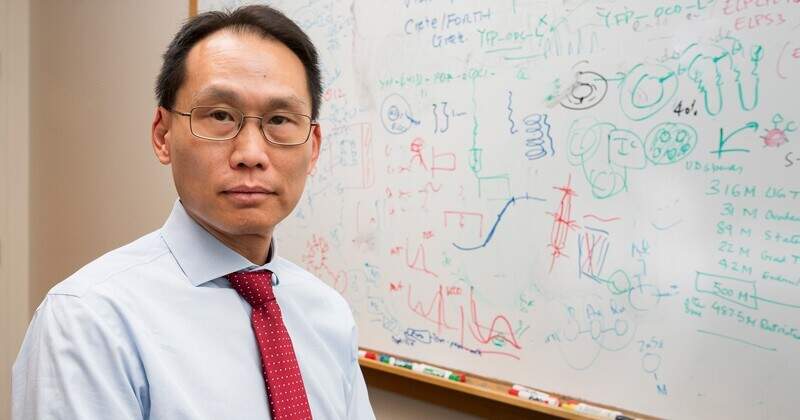Engineering’s Wilfred Chen publishes new CRISPR concept in Nature Chemical Biology
The University of Delaware’s Wilfred Chen, the Gore Professor in the College of Engineering’s Department of Chemical and Biomolecular Engineering, has found a new way to control metabolism in microorganisms, as outlined in a paper published in Nature Chemical Biology.
By using Cas6 proteins in the CRISPR type I system instead of the Cas9 proteins typically used for gene editing, Chen along with chemical and biomolecular engineering doctoral student Alexander Mitkas and postdoctoral researcher Mauricio Valverde have found a way to use synthetic RNA to modify the co-localization of proteins and the chemical reactions that occur in cells, ultimately leading to precise control of what cells can do or make.
Researchers have learned to understand the natural functions of Cas6 proteins, and have found a new way to design synthetic RNA to tell those proteins exactly what to do. It can “co-localize” or bring together proteins to speed along metabolic reactions needed to produce chemicals that could be used in biofuels or pharmaceuticals, for example. It could also work in the opposite way, too, separating proteins to slow down reactions.
This brand-new way of controlling protein localization, Chen said, allows researchers to modulate biosynthesis — a technology that could lead to synthetic biology-based applications in everything from biofuels and chemicals to medicines and agriculture.
Article by Maddy Lauria | Photo by Kathy F. Atkinson (featured on UDaily, 05/11/2022)

